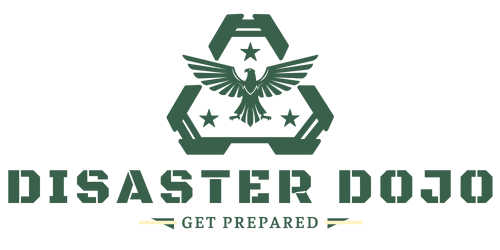In this article, you will discover essential tactics to help you survive and thrive in the face of the unimaginable – the end of the world as we know it. Whether it be a natural disaster, a global pandemic, or an apocalyptic event, there are practical steps you can take to protect yourself and your loved ones. From building a robust emergency kit to developing survival skills, this article will equip you with the necessary knowledge to navigate the challenges that may lie ahead. Get ready to unlock the secrets of survival and prepare yourself for whatever the future may bring.
Emergency Preparedness
In times of crisis, being prepared can make all the difference. Creating a disaster survival kit is one of the first steps you can take to ensure your safety and well-being. This kit should include essential items such as non-perishable food, water, a first aid kit, flashlights, batteries, and a battery-powered radio. It’s important to regularly check and update your kit to ensure everything is in working order and not expired. By having a well-stocked survival kit, you can feel more confident in your ability to handle emergencies.
Knowing your emergency exits is crucial in any situation. Whether you’re at home, work, or out in public, it’s important to familiarize yourself with the various exits available to you. Take the time to walk through your surroundings and identify the nearest exits and alternative routes to safety. Remember, in an emergency, every second counts, so having a clear plan of action and knowing how to quickly and safely exit a building could be life-saving.
Establishing communication channels is essential for staying connected during an emergency. Make sure you have a reliable means of communication, such as a charged cell phone, a two-way radio, or a landline. It’s also a good idea to have a designated meeting place for your family or loved ones in case you get separated. Additionally, consider keeping a written list of important phone numbers and addresses in your emergency kit. Being able to communicate with others and receive updates can help you better navigate through any crisis.
Developing an emergency plan is crucial to ensure you and your loved ones are prepared for any situation. Sit down with your family or household members and discuss potential emergencies that could occur in your area, such as natural disasters or local threats. Identify roles and responsibilities for each person, establish a meeting place, and create a timeline for emergency actions. Practice drills and review your plan regularly to ensure everyone is familiar with the procedures. By being proactive and planning ahead, you can minimize panic and confusion during an emergency.
Self-Defense
While we hope to never find ourselves in a dangerous situation, it’s important to be prepared for self-defense. Learning basic self-defense techniques can give you the confidence and skills needed to protect yourself in a crisis. Consider taking a self-defense class or watching instructional videos online to learn simple yet effective moves. Remember, self-defense is about using your body and surroundings to your advantage, not provoking further harm.
Carrying non-lethal weapons is another precautionary measure you can take to enhance your personal safety. Items such as pepper spray, personal alarms, or a whistle can help deter potential attackers and provide you with added security. Familiarize yourself with the laws and regulations regarding these weapons in your area and ensure you know how to use them safely and effectively.
Staying aware of your surroundings is essential for preventing and avoiding dangerous situations. Be mindful of your surroundings and trust your instincts. Avoid walking alone at night in poorly lit areas and be cautious when approached by strangers. Utilize well-trafficked routes and vary your daily routines to minimize predictability. By staying alert and aware, you can proactively protect yourself and potentially prevent harm.
Joining a self-defense class can further enhance your skills and knowledge. Not only will you learn practical techniques from trained professionals, but you’ll also gain confidence and a support network. Self-defense classes often provide a safe space for individuals to practice and learn together, fostering a sense of community and empowerment. Consider researching local self-defense classes in your area and take the step towards enhancing your personal safety.

Food Supply
During times of crisis, having an adequate food supply is vital for survival. It’s important to stock up on non-perishable foods that can sustain you and your family during an emergency. Items such as canned goods, dried grains, and protein-rich foods like peanut butter or canned meats are excellent choices. Aim to have a supply that can last at least two weeks for each person in your household. Remember to regularly check expiration dates and rotate your food supply to ensure freshness.
Growing your own food is not only a sustainable and cost-effective option, but it can also provide a sense of self-sufficiency during times of uncertainty. Consider starting a small garden and growing vegetables, herbs, or even fruits. Even if you have limited space, container gardening or vertical gardening can be viable options. Not only does gardening provide you with fresh, nutritious food, but it also offers a therapeutic and rewarding activity.
Learning food preservation techniques can help extend the shelf life of your perishable food items. Methods such as canning, dehydrating, and pickling allow you to preserve excess produce or bulk purchases. Vacuum sealing is another effective way to prevent spoilage and maintain the quality of your food for longer periods. By learning these techniques, you can reduce waste, save money, and have a sustainable food supply even in times of scarcity.
Establishing a sustainable food source is a long-term goal that can provide you with food security and self-reliance. Consider learning about permaculture, aquaponics, or hydroponics to cultivate your own food in a sustainable and environmentally friendly manner. These methods allow you to grow food indoors or outdoors, regardless of space limitations or geographical location. By establishing a sustainable food source, you reduce your dependency on external food systems and increase your resilience in the face of adversity.
Water Management
Having access to clean water is a fundamental necessity for survival. Therefore, it’s crucial to store an emergency water supply in your home. The general recommendation is to have at least one gallon of water per person per day, for a minimum of three days. Store your water supply in clean, food-grade containers in a cool and dark location. Regularly check the containers for any signs of damage or leakage.
Purifying water sources is essential in emergency situations where clean water may be scarce. Learn different water purification methods such as boiling, using water filters, or adding water purification tablets. Each method has its advantages and limitations, so it’s important to familiarize yourself with multiple techniques. Practice these methods during non-emergency situations to ensure you can effectively purify water when needed.
Learning rainwater harvesting techniques can also provide you with an additional water source during emergencies. Rain barrels or cisterns can collect rainwater from your roof, which can then be filtered and used for various purposes such as drinking, cooking, or hygiene. Research local regulations and guidelines regarding rainwater harvesting in your area, ensure your system is properly maintained, and be prepared to use alternative water sources when necessary.
Water conservation methods are not only beneficial for the environment but also crucial during times of water scarcity. Practice habits such as taking shorter showers, fixing leaks promptly, and reusing greywater for purposes like watering plants. Being mindful of your water usage can help stretch your available water supply and ensure its sustainability over an extended period. By adopting water conservation practices, you contribute to the preservation of this valuable resource.

Shelter and Survival
Securing your current shelter is a critical aspect of emergency preparedness. Regularly inspect your home or dwelling for any potential safety hazards, such as loose wires or damaged structures. Reinforce weak points and ensure your shelter is well-maintained. Consider creating a designated safe room or shelter-in-place area that is stocked with essential supplies. Familiarize yourself with the emergency protocols in your building, including evacuation routes and shelter locations.
Learning how to build temporary shelters is essential, especially in situations where your current shelter may be compromised or unavailable. Acquiring basic knowledge of shelter construction using natural materials such as branches, leaves, or tarp can provide you with a secure place to rest and protect yourself from the elements. Practice building shelters in non-emergency situations to improve your skills and efficiency.
Acquiring survival skills is crucial for navigating through challenging situations. Learn essential skills such as fire-making, finding and purifying water, navigation, foraging for food, and basic first aid. These skills can greatly enhance your chances of survival and self-sufficiency during emergencies. Consider attending survival workshops or joining outdoor adventure groups to learn from experienced individuals and gain hands-on experience.
Gathering essential tools and equipment is an important step in being prepared for emergencies. Ensure you have a well-equipped emergency kit that includes items such as a multi-tool, duct tape, rope, a whistle, a pocket knife, and a flashlight. Additionally, consider stocking up on essential supplies such as extra batteries, blankets, and a portable stove. Tailor your kit to fit your specific needs and the challenges you may face in your geographical location.
Health and Medical Preparedness
Stocking up on medications and first aid supplies is vital for maintaining your health during emergencies. Ensure you have an ample supply of prescription medications, vitamins, and over-the-counter remedies. Regularly check expiration dates and replenish your supplies as needed. Keep a first aid kit readily available and familiarize yourself with how to use its contents. Consider taking a first aid and CPR course to further enhance your medical preparedness.
Learning basic first aid and CPR can be a life-saving skill in emergency situations. Knowing how to assess and treat common injuries, perform CPR, and respond to medical emergencies can significantly improve outcomes for you and those around you. There are various courses available, both in-person and online, that can provide you with the necessary knowledge and skills. Investing time in learning these skills can make a difference in critical situations.
Staying physically active and maintaining fitness is often overlooked when it comes to emergency preparedness. Regular exercise and physical activity contribute to overall health and well-being, making you better equipped to handle the physical demands of an emergency situation. Aim for a balanced exercise routine that includes cardiovascular fitness, strength training, and flexibility exercises. Consider incorporating activities such as hiking, swimming, or yoga, which can also improve your survival skills.
Establishing a network of medical professionals can provide you with valuable resources and expertise during emergencies. Develop relationships with doctors, nurses, and pharmacists in your community. Join local medical societies or volunteer for medical organizations to expand your network. By having a network of medical professionals, you can access reliable information, seek assistance in times of need, and potentially contribute to the health and well-being of your community.

Community Building
Forming or joining a survivalist community can significantly enhance your chances of survival and resilience during a crisis. By coming together with like-minded individuals, you can pool resources, knowledge, and skills. Consider connecting with your neighbors, friends, or acquaintances who share similar interests in emergency preparedness. Establish a communication network and regularly meet to discuss preparedness plans, share resources, and offer support to one another.
Establishing bartering systems within your community can be invaluable during times of scarcity or economic instability. Exchange goods or services with others based on their respective needs and resources. By developing a bartering network, you create a sense of interdependence and resilience within your community. This system allows for the equitable distribution of resources and encourages cooperation and collaboration.
Sharing skills and knowledge within your community is crucial for building resilience. Each individual possesses unique skills and expertise that can benefit others. Consider organizing skill-sharing workshops or training sessions where community members can teach and learn from one another. Topics can range from first aid and survival skills to food preservation or renewable energy techniques. By sharing knowledge, you empower individuals and increase the overall preparedness and self-sufficiency of your community.
Developing trust and cooperation within your community is essential for effectively responding to emergencies. Regularly engage with your neighbors and build meaningful relationships based on trust and mutual support. Participate in community events and organizations to strengthen your connections. Establishing a sense of unity and collaboration prepares your community to face challenges together and reinforces a resilient mindset.
Psychological Resilience
In times of crisis, emotional well-being and psychological resilience are equally important as physical preparation. Educate yourself about psychological well-being by learning about stress management, anxiety reduction, and maintaining mental health. Understand the impact of trauma and develop strategies to cope and recover from difficult situations. Recognize the signs of mental health issues and seek help when needed.
Practice stress and anxiety management techniques to enhance your emotional well-being. Engage in activities that promote relaxation, such as meditation, deep breathing exercises, or mindfulness. Engaging in hobbies or interests that bring you joy and relief can also help alleviate stress. Prioritize self-care and make time for activities that promote your mental well-being.
Building emotional support systems is crucial during times of crisis. Surround yourself with trusted friends, family, or community members who provide emotional support. Share your concerns, fears, and uncertainties with them, and listen actively when they need to express their feelings. Establishing strong emotional connections can foster resilience and help you navigate through challenging times.
Developing a positive mindset and outlook is a powerful tool for overcoming adversity. Cultivate gratitude and optimism by focusing on the things you are grateful for and finding silver linings in difficult situations. Practice reframing negative thoughts into positive ones and seek out inspiring stories of resilience and survival. By embracing a positive mindset, you can approach challenges with resilience and hope.

Energy Independence
Investing in renewable energy sources, such as solar panels or wind turbines, can provide you with a sustainable and reliable source of energy during emergencies. Solar panels, in particular, can harness the power of the sun and convert it into electricity for your various needs. Research the feasibility of renewable energy options in your area and consult with professionals to determine the best solution for your specific circumstances.
Conserving energy in your daily life not only reduces your environmental footprint but also increases your self-sufficiency during emergencies. Be mindful of your energy usage by turning off lights and appliances when not in use, optimizing heating and cooling systems, and utilizing natural light whenever possible. By conserving energy, you reduce your dependency on external power sources and increase your resilience in case of power outages.
Learning basic electrical and mechanical skills can be invaluable during emergencies. Acquire knowledge in areas such as electrical wiring, troubleshooting, basic repairs, and maintenance of common appliances and equipment. Understanding the systems and mechanisms that power your everyday life can help you identify and address issues when conventional services are not available. Consider taking classes or attending workshops to learn these practical skills.
Reducing dependency on fossil fuels is an important step towards increasing your energy independence. Explore alternative modes of transportation such as biking or walking for short distances. Consider using electric vehicles or carpooling to reduce fuel consumption. Additionally, prioritize energy-efficient appliances and technologies in your home. By reducing your reliance on fossil fuels, you contribute to the preservation of natural resources and decrease your vulnerability to energy shortages.
Knowledge and Skills Acquisition
Learning survival skills from books and online resources is an accessible and cost-effective way to acquire valuable knowledge. There are numerous resources available, ranging from survival guides to instructional videos. Explore reputable sources that provide practical information on topics such as wilderness survival, first aid, food preservation, and self-defense. Take the time to research and learn from experts in the field to broaden your skill set.
Acquiring practical skills like gardening and DIY can greatly enhance your self-sufficiency and survival capabilities. Learning how to grow your own food, build or repair structures, or perform basic maintenance tasks gives you the ability to adapt and thrive in various situations. Consider attending workshops, joining community gardens, or volunteering for DIY projects to acquire hands-on experience and learn from experienced individuals.
Staying updated on current events and developing analysis skills is important for informed decision-making during emergencies. Stay informed about local, national, and global news to be aware of potential threats or developments that may impact your community. Develop critical thinking and analysis skills to assess the credibility and reliability of information. By staying informed, you can make informed decisions that contribute to your overall preparedness and safety.
Learning navigation and orientation techniques is crucial for mobility and finding your way during emergencies. Familiarize yourself with tools such as maps, compasses, and GPS devices. Practice navigating using landmarks or celestial objects to orient yourself when traditional navigation tools are not available. Acquire the knowledge and skills required to navigate through unfamiliar terrains and environments. By being able to navigate effectively, you increase your chances of reaching safety and finding necessary resources.
By following these comprehensive tactics for survival, you can better prepare yourself for emergencies and enhance your chances of surviving the end of the world as we know it. Remember, being well-prepared doesn’t necessarily mean succumbing to fear or paranoia. Instead, it’s about empowering yourself with knowledge, skills, and resources that will enable you to navigate challenging situations with resilience and confidence. Start taking steps today, and you’ll be well on your way to becoming a prepared and self-sufficient individual.



